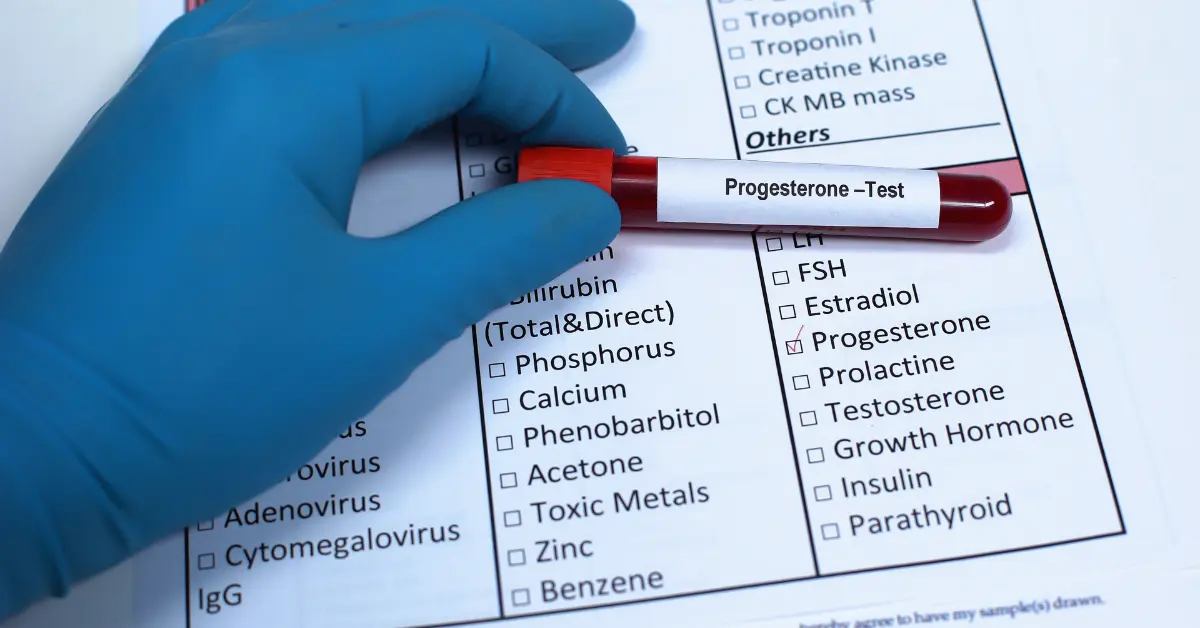Experiencing irregular periods, mood swings, or infertility issues? Low progesterone levels might be to blame. Progesterone is a vital hormone that plays a crucial role in regulating the menstrual cycle and supporting pregnancy. When progesterone levels are out of balance, it can lead to various health issues that can impact your quality of life.
But don’t worry – there are natural ways to boost your progesterone levels and restore hormonal harmony. In this article, we’ll explore the signs of low progesterone, the factors that can affect it, and simple lifestyle changes you can make to support healthy progesterone production.
Key Takeaways
- Progesterone is essential for a healthy menstrual cycle and pregnancy.
- Low progesterone can cause symptoms like irregular periods and mood swings.
- Diet, exercise, stress reduction, and supplements can naturally increase progesterone.
Understanding the Power of Progesterone
First, let’s dive into what progesterone is and why it matters. Progesterone is a female sex hormone produced mainly in the ovaries and adrenal glands. It works in tandem with estrogen to keep your menstrual cycle running smoothly.
Progesterone also plays a starring role in preparing your uterus for a potential pregnancy and helping to maintain a healthy pregnancy if conception occurs.
Signs Your Progesterone Levels May Be Low
Do any of these symptoms sound familiar?
- Irregular or missing periods
- Spotting between periods
- Mood swings and irritability
- Difficulty sleeping
- Headaches or migraines
- Low sex drive
- Infertility or miscarriages
If you’re nodding your head, it’s time to pay attention to your progesterone. These symptoms can be a red flag that your levels are off balance. Don’t brush them off – talk to your healthcare provider to get to the bottom of what’s going on.
Factors That Affect Progesterone Balance
Several factors can contribute to low progesterone levels, including:
- Chronic stress and anxiety
- A diet lacking essential nutrients
- Too little or too much exercise
- Certain medications
- Medical conditions like PCOS or thyroid disorders
- Exposure to environmental toxins and endocrine disruptors
The good news is that making some simple lifestyle tweaks can help balance progesterone production and get you feeling like yourself again.
5 Natural Ways to Increase Progesterone
- Nourish your body with a nutrient-dense diet full of healthy fats, fiber, and colorful plant foods. Load up on progesterone-boosting foods like avocados, nuts, seeds, whole grains, and leafy greens.
- Move your body regularly with moderate exercise like yoga, walking, or swimming. Just be careful not to overdo it – too much intense exercise can actually disrupt your hormones.
- Make stress management a priority. Try meditation, deep breathing, or journaling to calm your mind and support balanced hormones. Chronic stress is a major progesterone killer.
- Prioritize quality sleep. Aim for 7-9 hours per night to give your body the rest it needs for optimal hormone production. Create a relaxing bedtime routine and keep your bedroom cool and dark.
- Talk to your doctor about supplements that can support progesterone balance, like vitamin B6, zinc, magnesium, and chasteberry (Vitex). Just make sure to get the green light from your healthcare provider first.
When Hormone Therapy or Medical Interventions May Be Necessary?
Sometimes, natural remedies alone aren’t enough to get progesterone levels back on track. In these cases, your doctor may recommend hormone replacement therapy (HRT) to restore balance. This may involve taking progesterone pills, using creams or gels, or receiving injections.
For severe progesterone deficiencies, other medical interventions like vaginal suppositories may be necessary. The key is to work closely with your healthcare provider to find the best approach for your unique needs and health history.
Lifestyle Changes for Long-Term Progesterone Balance
To keep your progesterone levels happy and healthy for the long haul, focus on:
- Eating an anti-inflammatory, whole foods-based diet
- Exercising regularly while avoiding overtraining
- Making sleep and stress management a top priority
- Steering clear of endocrine-disrupting chemicals found in plastics, pesticides, and personal care products
- Seeing your doctor for regular hormone check-ups
By taking a holistic, lifestyle-based approach, you can support lasting hormonal balance and feel your best from the inside out.
Take Control: Naturally Balance Your Progesterone Levels
Low progesterone can throw your hormones and your health out of whack. But by tuning into your body’s signals and making some simple diet and lifestyle upgrades, you can naturally nudge your progesterone levels back into a healthy range.
Remember – eating nourishing foods, moving your body regularly, managing stress, prioritizing sleep, and working with your doctor are the keys to progesterone success. With a little effort and consistency, balanced hormones and vibrant health are well within your reach.
FAQs
A: Blood tests are the gold standard for measuring progesterone. Ask your doctor to order a test to get a clear picture of your levels. (Source: National Institute of Child Health and Human Development)
A: It’s always best to talk to your doctor before starting any new supplement, including progesterone. They can help you determine if supplements are right for you and provide personalized dosage guidance.
A: It can take several months of consistent lifestyle changes to see noticeable improvements in progesterone levels. Stay patient and stick with your healthy habits – your hormones will thank you.
A: Healthy progesterone levels are crucial for fertility and maintaining a pregnancy. If you’re struggling to conceive, talk to your doctor about testing your progesterone levels and exploring potential treatments. (Source: American College of Obstetricians and Gynecologists)

